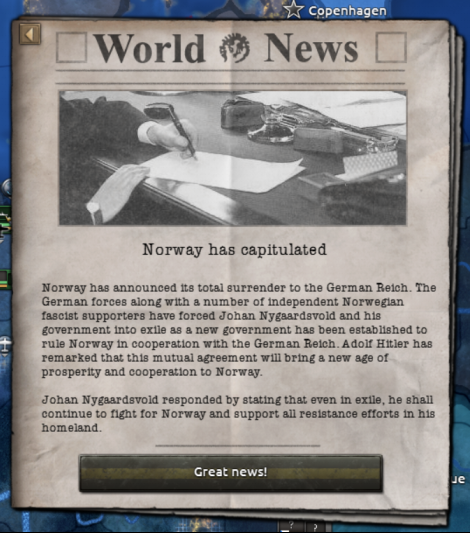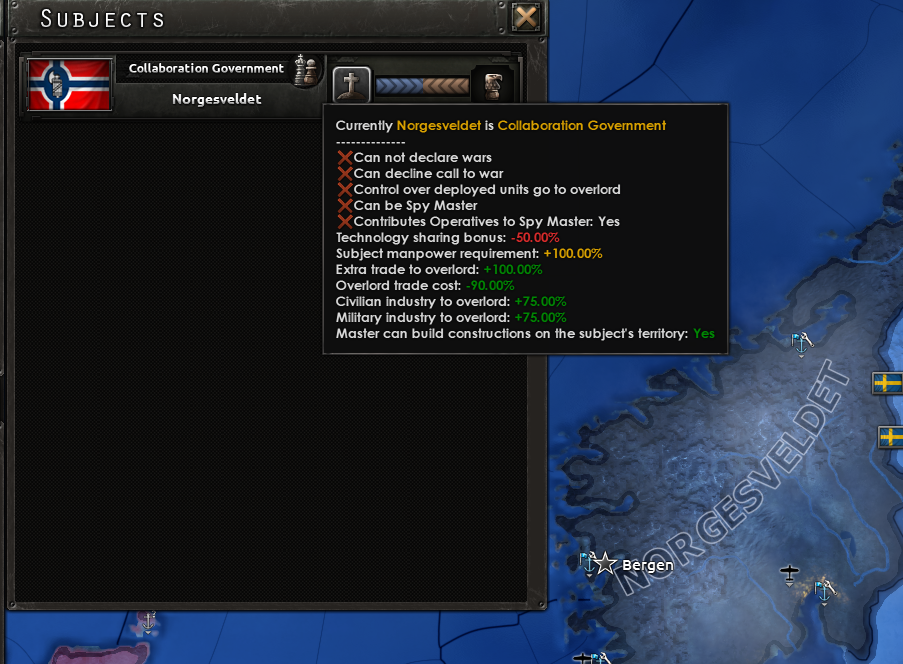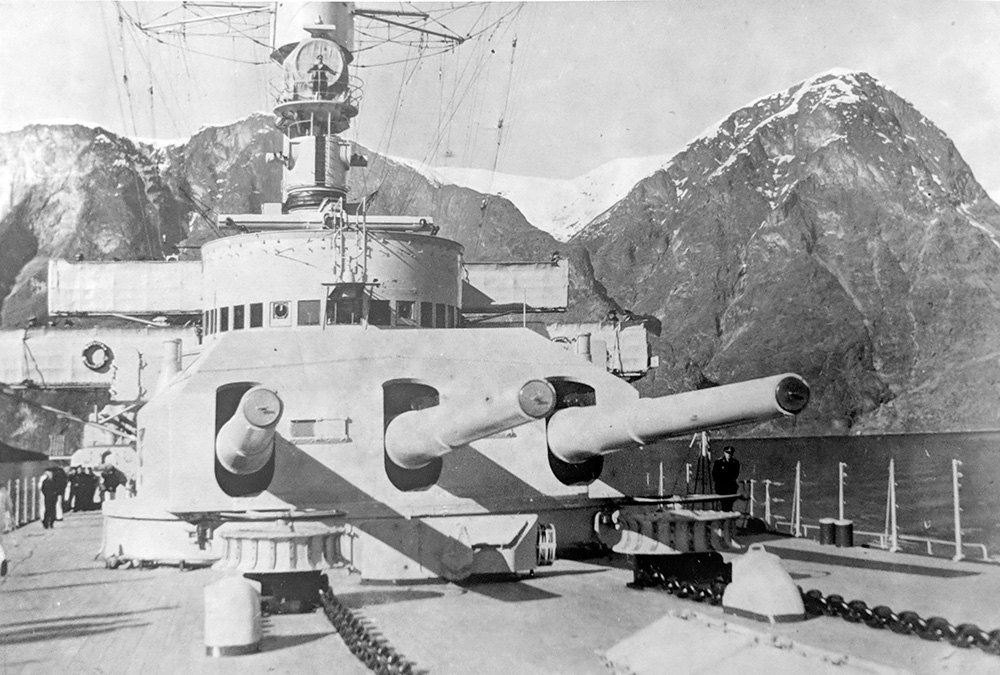Hi guys! Today we are going to be talking about collaboration, compliance and also coups as we missed covering them in last weeks dev diary about operations.
Coups
Lets start off with coups. These are now an operation and needs to be set up by your agents.

Its possible to say where you want the coup to originate, which adds some nice strategic power to it (such as targeting colonial areas that are harder to recover etc).
There are several ways to make a coup more successful, and in reverse protect yourself. A coup needs low stability, political support for the couping ideology and agents need to have prepared a network, infiltrated the government and built up the coup. So as an attacker you will want to mess with these things in advance (say by using spy missions and operations). And of course as the target, you want to keep these values up to stay safe, as well as making sure your nation counterespionage is up to the task.
We have also changed the behaviour of the resulting wars a bit so when a side wins against the other planes and ships will switch hands instead of being lost. This could often be a reason to launch small coups with no hope just to mess with the enemies navies.
Collaboration
Collaborators work similar, but opposite to Governments in Exile. They are created by an operation where agents are sent in to convert and/or support local collaborators.

This is an operation you can run more than once (although cost and time goes up every time), and for each one you will strengthen the collaborators. Foreign Collaboration governments are tracked (much like GiE) from your country screen.

The higher the value of collaborators present the easier it will be to make the nation capitulate which can be important in cases where you need to move in fast. You also unlocks levels of compliance in the new resistance and compliance system which will be transferred to regular compliance once the target nation is capitulated. This can be useful for giving you a head start on managing a lot of occupied areas by laying some groundwork before you even attack.

Speaking of compliance, we never really went into detail on how that worked before, so lets take a look now. If you need to read up on the changes coming to the resistance system as a whole though check out the dev diary here.
There are several levels of compliance "unlocks". These happen on a national level for the occupied nation.

The first unlock is “Informants.” Secret police working in the province have established a network of snitches and collaborators. This gives an increase to defense against enemy operatives in the occupied nation. The next unlock is “Local Police Force.” At this level, enough locals have been trained and are loyal enough to police their country for the occupiers. As a result, local garrison needs are now reduced. The third unlock is “Reorganized Workforce.” At this point, Life is returning to some level of normalcy and people are able to go about their daily lives and perform their normal jobs. This compliance unlock adds access to another 10% of factories and resources across the occupied nation. “Volunteer Program” is the fourth compliance unlock. This represents locals volunteering to serve in their occupier’s military and adds 10% of the population as fit for service.
The final unlock is “A New Regime”. At this highest level it is possible to create a new subject type “Collaboration Government” directly. This frees you up from policing it and ensures that it sticks to you in any peace deal you win. Getting high compliance can be a lot of effort in war time and it can be a very good idea to make sure you have collaborators in place before invasions.

Collaboration governments will mirror your map color as well to show how closely aligned they are.

See you all next week when we will look at some intel gathering tools…
Coups
Lets start off with coups. These are now an operation and needs to be set up by your agents.

Its possible to say where you want the coup to originate, which adds some nice strategic power to it (such as targeting colonial areas that are harder to recover etc).
There are several ways to make a coup more successful, and in reverse protect yourself. A coup needs low stability, political support for the couping ideology and agents need to have prepared a network, infiltrated the government and built up the coup. So as an attacker you will want to mess with these things in advance (say by using spy missions and operations). And of course as the target, you want to keep these values up to stay safe, as well as making sure your nation counterespionage is up to the task.
We have also changed the behaviour of the resulting wars a bit so when a side wins against the other planes and ships will switch hands instead of being lost. This could often be a reason to launch small coups with no hope just to mess with the enemies navies.
Collaboration
Collaborators work similar, but opposite to Governments in Exile. They are created by an operation where agents are sent in to convert and/or support local collaborators.

This is an operation you can run more than once (although cost and time goes up every time), and for each one you will strengthen the collaborators. Foreign Collaboration governments are tracked (much like GiE) from your country screen.

The higher the value of collaborators present the easier it will be to make the nation capitulate which can be important in cases where you need to move in fast. You also unlocks levels of compliance in the new resistance and compliance system which will be transferred to regular compliance once the target nation is capitulated. This can be useful for giving you a head start on managing a lot of occupied areas by laying some groundwork before you even attack.

Speaking of compliance, we never really went into detail on how that worked before, so lets take a look now. If you need to read up on the changes coming to the resistance system as a whole though check out the dev diary here.
There are several levels of compliance "unlocks". These happen on a national level for the occupied nation.
The first unlock is “Informants.” Secret police working in the province have established a network of snitches and collaborators. This gives an increase to defense against enemy operatives in the occupied nation. The next unlock is “Local Police Force.” At this level, enough locals have been trained and are loyal enough to police their country for the occupiers. As a result, local garrison needs are now reduced. The third unlock is “Reorganized Workforce.” At this point, Life is returning to some level of normalcy and people are able to go about their daily lives and perform their normal jobs. This compliance unlock adds access to another 10% of factories and resources across the occupied nation. “Volunteer Program” is the fourth compliance unlock. This represents locals volunteering to serve in their occupier’s military and adds 10% of the population as fit for service.
The final unlock is “A New Regime”. At this highest level it is possible to create a new subject type “Collaboration Government” directly. This frees you up from policing it and ensures that it sticks to you in any peace deal you win. Getting high compliance can be a lot of effort in war time and it can be a very good idea to make sure you have collaborators in place before invasions.

Collaboration governments will mirror your map color as well to show how closely aligned they are.

See you all next week when we will look at some intel gathering tools…


